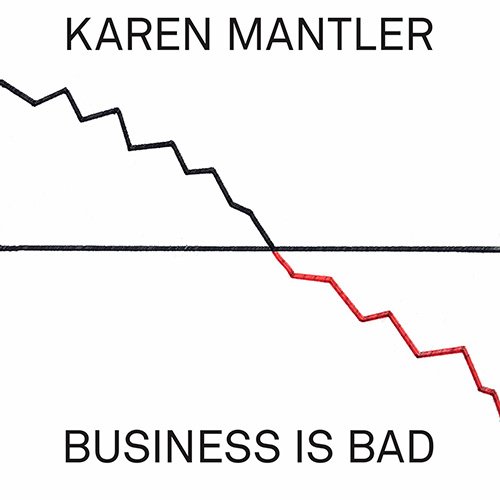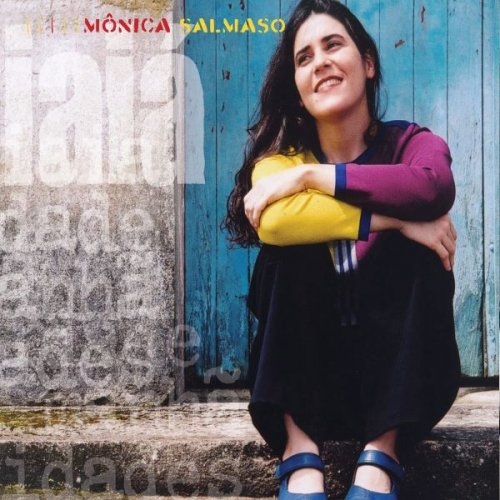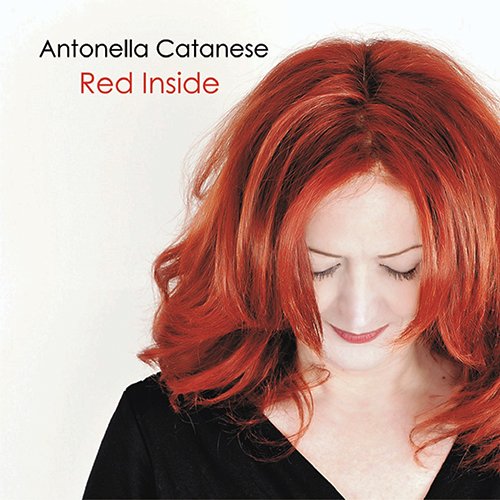Karen Mantler - Business Is Bad (2014) FLAC

Artist: Karen Mantler
Title: Business Is Bad
Year Of Release: 2014
Label: ECM Records
Genre: Jazz
Quality: FLAC (tracks)
Total Time: 45:43 min
Total Size: 181 MB
WebSite: Album Preview
Tracklist:Title: Business Is Bad
Year Of Release: 2014
Label: ECM Records
Genre: Jazz
Quality: FLAC (tracks)
Total Time: 45:43 min
Total Size: 181 MB
WebSite: Album Preview
1. Catch As Catch Can [6:09]
2. My Magic Pencil (Wrote This Melody) [2:57]
3. Speak French [5:55]
4. Wintertime [4:14]
5. Surviving You [6:32]
6. Business Is Bad [4:45]
7. I Can t Afford My Lawyer [2:59]
8. My Solo [7:00]
9. That Damn Volcano [5:09]
To read through Karen Mantler's hilarious biography on XTRA Watt's website, her life from the very beginning has been...unusual. Conceived by Carla Bley and Michael Mantler at the 1965 Newport Jazz Festival, as an infant she was placed under her mother's piano while she performed, and made her recording debut at the age of four on Escalator Over the Hill. Mantler has worked as a bandleader, live, and session player (with Robert Wyatt, Motohiko Hino, and the Golden Palominos, no less), musical transcriber, label boss, street musician, and coffee server. As a leader her four previous records comprised an 11-year cycle that revolved around her pet cat, his death, and her search for a replacement that began in 1989 with My Cat Arnold and ended with Karen Mantler's Pet Project in 2000, all of which melded progressive jazz and sophisticated avant-pop. Despite its title and the smallest lineup she has ever fronted (she's singing and playing piano and harmonica, accompanied by bassist Kato Hideki and Doug Wieselman on bass clarinet and guitar). Business Is Bad may be the record that reaches the largest audience. These songs are no less idiosyncratic or musically refined, but sparser arrangements and warm, spacious production frame her lyrics and melodies in such a way as to render them more accessible. The focus here is on the direct interplay between lyric and melody, yet her wry humor and honesty remain ever present. "Catch as Catch Can" opens on a deep bluesy note as it address the plight of the homeless and hungry, living in parks and eating when and what they can. Her delivery is dispassionate, thus making the lyric more poignant: "There are hungry people in the park, and they need to eat...There are too many geese anyway/You could eat one every day..What the fuck?/ Catch a duck/Spear a fish on a stick...What's the big deal?"
"My Magic Pencil (Wrote This Melody)" plays on bossa nova in the same way Tom Jobim did on "One Note Samba," with a metatextual lyric. The album's middle contains two fine ballads: "Wintertime" and "Surviving You" are quietly elegant songs that use humor more subtly; they reveal the influence of songwriters such as Harry Warren, Harold Arlen, Jimmy Van Heusen, et al. The title track recalls later Blossom Dearie and features a swinging bass clarinet break from Wieselman. (He also delivers a wailing solo on the more musically labyrinthine closer "That Damn Volcano.") On "My Solo," Mantler employs a lovely tango melody to tell us she cannot improvise, then proceeds to do exactly that on the harmonica with a gracefulness that recalls Toots Thielemans. Business Is Bad marks a welcome return for Mantler; if anything, she's only gotten better so it serves as a signature work. But for those who've never encountered her before, the album might prove a quiet revelation. -- Thom Jurek
"My Magic Pencil (Wrote This Melody)" plays on bossa nova in the same way Tom Jobim did on "One Note Samba," with a metatextual lyric. The album's middle contains two fine ballads: "Wintertime" and "Surviving You" are quietly elegant songs that use humor more subtly; they reveal the influence of songwriters such as Harry Warren, Harold Arlen, Jimmy Van Heusen, et al. The title track recalls later Blossom Dearie and features a swinging bass clarinet break from Wieselman. (He also delivers a wailing solo on the more musically labyrinthine closer "That Damn Volcano.") On "My Solo," Mantler employs a lovely tango melody to tell us she cannot improvise, then proceeds to do exactly that on the harmonica with a gracefulness that recalls Toots Thielemans. Business Is Bad marks a welcome return for Mantler; if anything, she's only gotten better so it serves as a signature work. But for those who've never encountered her before, the album might prove a quiet revelation. -- Thom Jurek


![Mammal Hands - Circadia (2026) [Hi-Res] Mammal Hands - Circadia (2026) [Hi-Res]](https://www.dibpic.com/uploads/posts/2026-02/1771945393_folder.jpg)




![Ex Novo Ensemble - Claudio Ambrosini: Chamber Music (2020) [Hi-Res] Ex Novo Ensemble - Claudio Ambrosini: Chamber Music (2020) [Hi-Res]](https://img.israbox.com/img/2026-02/22/z541qb9ul4q390uxlw1d9iak3.jpg)
